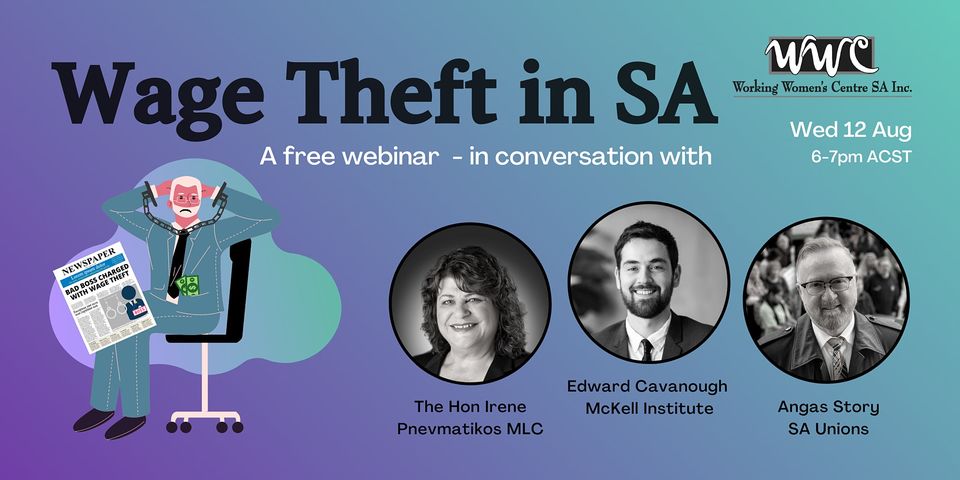The Working Women’s Centre SA recovered over $500,000 for workers in just one financial year. While this is a great achievement, it is only a fraction of what is owed to hard working South Australians. We know, more than most, that wage theft is hitting women and migrant workers the hardest.
Wage theft extends to the non-payment of base wages, penalty rates, superannuation, loadings, and the non-payment of entitlements that workers should be receiving by law. In some sectors of the economy, wage theft has transitioned from a fringe activity to a business model.
This is an issue for workers and the government. In fact, the South Australian Parliamentary Wage Theft Interim Report confirms what we already knew: wage theft is rife in South Australia and it affects the most vulnerable workers in our community.
We gave evidence to the Wage Theft Inquiry about one of our clients who was only paid $14 an hour. How can you live on $14 an hour? You can’t. It isn’t a living wage.
In response to the Interim Report, we are holding a community discussion about the prevalence of wage theft to kick start South Australia’s response to this issue.


